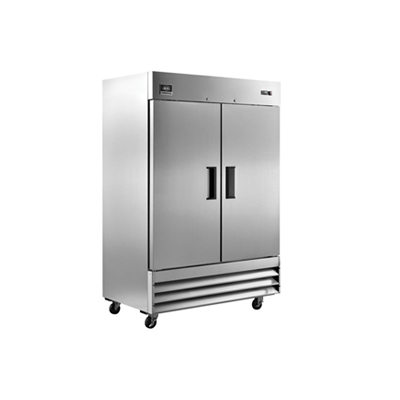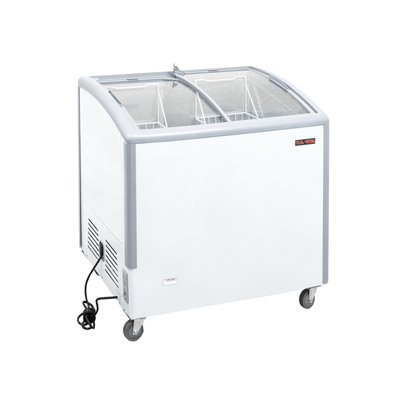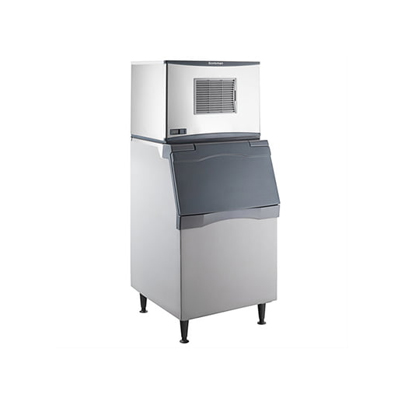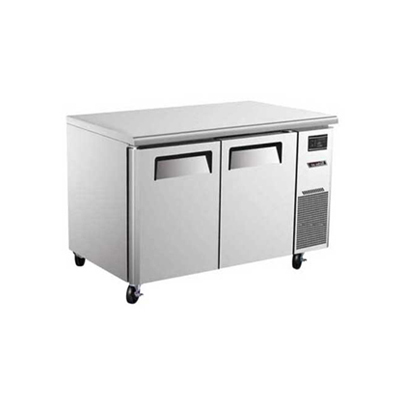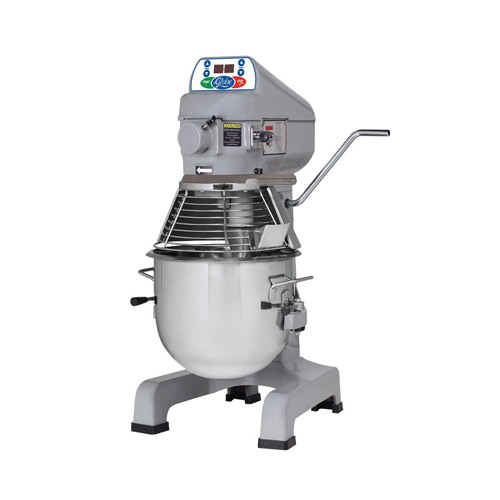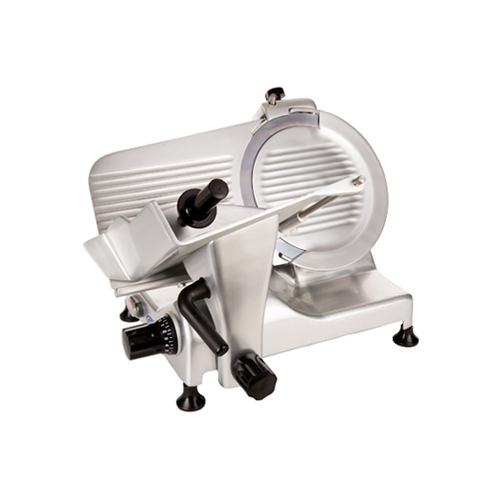Types of Ice: A Comprehensive Guide for Restaurants
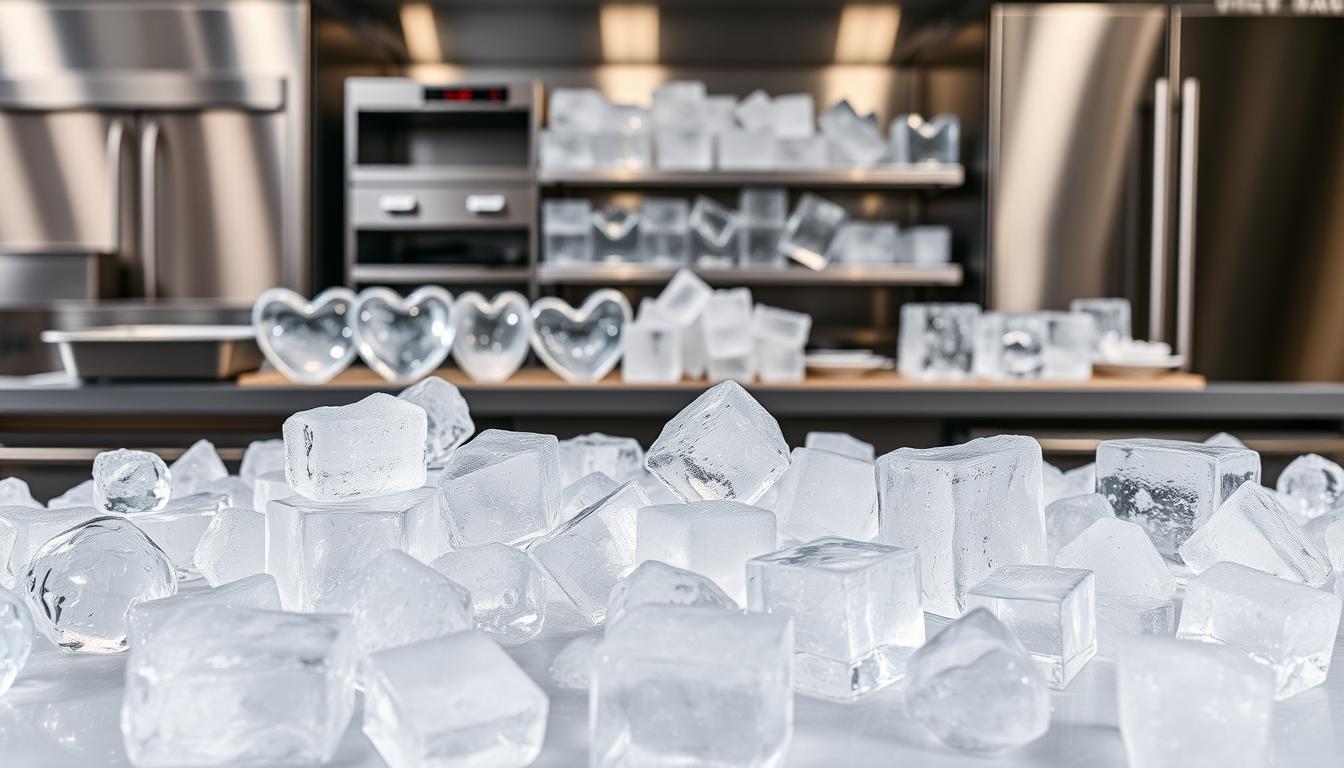
Did you know that the type of ice you use can make or break the quality of your drinks? Not all ice is created equal, and factors like melt rate, shape, and size play a crucial role in beverage presentation and flavor preservation.
For instance, ice cubes are designed to melt slowly, preserving the taste of your drinks longer. On the other hand, type ice refers to specific forms like nugget or gourmet ice, each with unique benefits. Understanding these differences is key to elevating your restaurant’s drink service.
Choosing the right ice can enhance both the look and performance of your drinks. Whether it’s classic dice, nugget, or gourmet ice, each type offers distinct advantages. Babak Food Equipment specializes in providing top-tier ice machines tailored to your restaurant’s needs.
In this guide, we’ll explore the various ice types, their melt rates, and how they impact your beverages. By the end, you’ll be equipped to make informed decisions that boost customer satisfaction and your brand’s image.
Overview: The Importance of Ice in the Restaurant Industry
Ice is more than just a cooling agent; it’s a crucial element in enhancing the dining experience. The right ice can elevate presentation, maintain drink quality, and leave a lasting impression on customers.
How Ice Enhances Beverage Presentation
High-quality ice, such as nugget ice, isn’t just about cooling drinks—it’s about the experience. Different type ice can transform a beverage, with nugget ice offering a unique texture that enhances both presentation and flavor. For instance, gourmet ice, with its large, clear cubes, is perfect for premium cocktails, adding a touch of sophistication.
Boosting Customer Experience with Quality Ice
Using the right ice maker can significantly impact the consistency and quality of your ice. A commercial ice maker designed for nugget or flake ice ensures that every drink served meets high standards. Customers notice the difference, whether it’s the clarity of gourmet ice or the convenience of nugget ice.
| Ice Type | Characteristics | Best Use |
|---|---|---|
| Nugget Ice | Bite-sized, chewable | Cocktails, sodas |
| Flake Ice | Soft, flexible | Display, food preservation |
| Gourmet Ice | Large, clear cubes | Premium drinks, presentations |
Investing in a quality ice maker can elevate your restaurant’s beverage service, ensuring every drink is perfectly presented and enjoyed. For more on choosing the right ice maker, visit Babak Food Equipment.
Understanding Ice: Beyond Just Frozen Water
When it comes to crafting the perfect drink, the role of ice goes far beyond its basic function. Ice is a complex product with unique characteristics that play a crucial role in enhancing the quality and presentation of beverages.
Unique Characteristics of Different Ice Varieties
The science behind ice reveals that its composition and texture significantly impact the flavor and overall drinking experience. Classic ice cubes, for instance, are designed to melt slowly, preserving the taste of your drink. On the other hand, half-dice ice offers a quicker cooling effect without over-diluting the beverage.
The size and clarity of ice cubes are equally important. Larger, clearer cubes melt at a slower rate, preventing drinks from becoming watered down. This is especially important for premium cocktails, where maintaining flavor integrity is key. Imagine ice as the canvas that holds the artwork of your drink, where every detail matters.
Understanding these differences is essential for delivering high-quality drinks. By choosing the right type of ice, you can ensure that every sip meets your customers’ expectations, elevating their overall satisfaction and your restaurant’s reputation.
The Science Behind Melt Rate and Ice Shape
Understanding how ice melts is crucial for preserving drink quality. The melt rate depends on factors like surface area, density, and composition.
Key Factors Impacting Melt Performance
The science behind ice melt is rooted in physics. Larger ice cubes, such as gourmet ice, melt slower due to less surface area exposed. This reduces dilution, keeping drinks flavorful longer.
Surface area plays a significant role. Smaller ice shapes, like nugget ice, have more surface area, melting faster and cooling drinks quickly but causing more dilution. Density also matters—denser ice melts slower.
| Ice Shape | Melt Rate | Dilution Impact |
|---|---|---|
| Large Cubes (Gourmet Ice) | Slow | Low |
| Nugget Ice | Fast | High |
| Flake Ice | Very Fast | Very High |
Exploring types of ice for Optimal Beverage Cooling
Selecting the right ice for your beverages is crucial for maintaining flavor and presentation. Different ice forms offer unique benefits, from melt rate to texture, each tailored to specific drinks.
Classic Dice and Half-Dice Comparisons
Classic dice ice, with its larger size, melts slowly, preserving drink flavor. Half-dice ice, smaller and quicker to melt, is ideal for rapid cooling without over-dilution.
Nugget Versus Gourmet Ice: Texture and Functionality
Nugget ice, chewable and fast-melting, is perfect for sodas. Gourmet ice, with its clear, large cubes, melts slowly, ideal for premium cocktails, preventing dilution.

Choosing the right ice enhances drink quality and presentation, ensuring customer satisfaction and elevating your restaurant’s image.
Ice Shapes and Their Unique Applications
When it comes to enhancing your beverages, the shape of your ice plays a crucial role. Different ice shapes offer unique benefits, from visual appeal to functional advantages, making them ideal for specific drink scenarios. Understanding these shapes can elevate your restaurant’s beverage service.
Crescent ice, for instance, is a popular choice due to its distinct half-moon shape. This innovative design allows for better liquid displacement, ensuring your drinks stay flavorful longer. Crescent ice is widely used in commercial settings because it prevents clumping and packs tightly, making it ideal for self-serve stations. Machines specifically designed for crescent ice ensure consistent production, which is essential for maintaining quality in high-volume environments.
Beyond crescent ice, other unique shapes like tulip and spherical ice are gaining traction. Tulip ice, with its elegant design, is perfect for specialty cocktails, while spherical ice adds a touch of sophistication to premium beverages. These shapes not only enhance the aesthetic appeal of drinks but also influence how they cool and dilute. For example, spherical ice melts slowly, preserving the flavor of craft cocktails without over-diluting them.
The role of machine-produced ice cannot be overstated. Modern ice machines are designed to produce consistent shapes, ensuring every piece of ice meets your restaurant’s standards. Whether you’re serving sodas, cocktails, or other beverages, the right machine can maintain consistency and quality across all your ice needs. This consistency is key to delivering a superior customer experience.
In the beverage industry, the interplay between ice shape and drink quality is significant. Different shapes are tailored to specific beverages, ensuring optimal cooling without compromising flavor. For instance, crescent ice is ideal for beverages that require slow melting, while tulip ice is better suited for drinks that need a faster cooling effect. By selecting the right ice shape, you can enhance both the presentation and taste of your beverages, leading to higher customer satisfaction.
Industry trends highlight the growing importance of unique ice shapes in restaurants. From crescent to spherical ice, each shape offers distinct advantages that can set your establishment apart. By investing in a machine that produces these innovative shapes, you can cater to a wide range of beverage needs while maintaining high standards of quality and presentation.
Choosing the Right Ice Maker for Your Business
Selecting the perfect ice maker is crucial for your business, as it directly impacts customer satisfaction and operational efficiency. An ice maker is more than just an appliance; it’s a key player in delivering high-quality beverages and ensuring a positive customer experience.
Features to Look for in Commercial Ice Makers
When choosing a commercial ice maker, consider reliability, capacity, and user-friendliness. These factors ensure consistent ice production and ease of use, which are vital for busy restaurant environments.
| Feature | Details | Importance |
|---|---|---|
| Production Capacity | Range from 25 lb. to 35 lb. per day | Ensures sufficient ice supply for peak hours |
| Energy Efficiency | Energy Star Certification | Reduces operational costs and environmental impact |
| Ice Type | Cubed, nugget, or flake | Caters to specific beverage needs |
For businesses seeking top-tier solutions, Babak Food Equipment offers a range of high-quality ice makers. Contact them at 604-566-9747 for tailored recommendations.

Considering energy efficiency, maintenance, and space is essential. Opt for models with features like automatic shut-off and easy cleaning cycles. Assessing your specific needs, such as production capacity and storage, will guide your decision.
In conclusion, the right ice maker can elevate your business’s beverage service. Let Babak Food Equipment help you find the perfect fit to enhance flavor and presentation, ensuring customer satisfaction and a superior experience.
Enhancing Beverage Quality with Perfect Ice
Perfect ice is more than just a cooling agent—it’s a key player in elevating the presentation and quality of cocktails and spirits. The right size and shape of ice can transform a drink, making it visually appealing and flavorful.
Impact on Cocktail & Spirit Presentation
Imagine a cocktail where every sip is as flavorful as the first. This is where perfect ice comes into play. The size and shape of ice significantly influence both the aesthetics and the taste of your drink.
Half-cube and crescent ice designs are particularly effective. Half-cube ice melts at a balanced rate, preventing over-dilution while keeping your drink refreshing. Crescent ice, with its unique shape, displaces liquid effectively, ensuring flavors stay intact longer.
Scientific data shows that larger, clearer ice melts slower, preserving the drink’s integrity. For instance, clear ice cubes made from purified water have a slower melt rate compared to cloudy ice, reducing dilution and maintaining flavor.
Choosing the right ice size and shape can elevate your cocktail game. Whether it’s half-cube for balanced melting or crescent for visual appeal, perfect ice ensures every sip is a delight, enhancing both presentation and taste.
Innovative Ice and Beverage Garnishing Techniques
Take your drink presentations to the next level with creative ice garnishing techniques. Full cube and nugget ice are not just for cooling; they can elevate your beverages’ visual appeal and flavor profile.
Imagine a cocktail featuring a large full cube ice that melts slowly, preserving the drink’s integrity. This approach is perfect for spirit-forward drinks like a Negroni. Alternatively, nugget ice adds a unique texture, making it ideal for sodas and other refreshing beverages.
For a dramatic effect, try using full cube ice as a base and top it with a twist of citrus. The slow cooling effect ensures your drink stays flavorful without dilution. Nugget ice, with its fast cooling rate, is great for creating slushy textures in frozen drinks.
Experiment with edible flowers or herbs pressed into nugget ice for a colorful twist. As the ice melts, the flavors and aromas are released, enhancing the drinking experience. This technique is both functional and visually stunning, perfect for high-end presentations.
Investing in a quality ice maker ensures consistent production of full cube and nugget ice, allowing your team to implement these creative garnishing methods effortlessly. Elevate your restaurant’s beverage service and impress your customers with innovative ice techniques.
Application of Ice in Various Restaurant Settings
Restaurants, bars, and cafes each have unique needs when it comes to ice. The right ice can elevate your business’s beverage service, ensuring every drink is perfectly chilled and presented.
Restaurants, Bars, and Cafes Explored
In high-end bars, large, clear ice cubes are often preferred for premium cocktails, as they melt slowly and preserve flavor. In contrast, casual cafes might opt for smaller ice forms like half-cubes for faster cooling in sodas and iced teas.
For settings requiring rapid cooling, crushed ice is ideal. It’s perfect for blended drinks or displays where quick cooling is essential. This versatility ensures that every establishment can find an ice solution tailored to its needs.
When choosing an ice maker, consider your business’s specific demands. For instance, a bar serving craft cocktails might invest in a gourmet ice maker, while a cafe might prefer a machine producing smaller, faster-melting ice for teas and coffees.
By matching your ice type to your business needs, you can enhance drink quality, presentation, and customer satisfaction. This strategic approach ensures your restaurant stands out, providing a superior experience that keeps customers coming back.
Comparing Ice for Chilling Versus Blending
When it comes to preparing drinks, the choice of ice can significantly impact both the chilling and blending processes. Different ice types are suited for different applications, and understanding their unique characteristics can elevate your beverage service.
For chilling drinks, larger ice cubes are preferred due to their slower melt rate. Gourmet ice, with its large, clear cubes, is ideal for this purpose. It melts slowly, preventing over-dilution and maintaining the drink’s flavor. The texture of gourmet ice also adds a touch of sophistication to premium cocktails.
In contrast, blending requires smaller ice forms like nugget or crushed ice. These types of ice have a higher surface area, leading to faster melting and better blending performance. The texture of nugget ice, for instance, ensures smooth blending without leaving large ice chunks, making it perfect for frozen drinks and slushies.

Industry recommendations suggest using gourmet ice for straight spirits or cocktails that require slow melting. For frozen drinks or slushies, crushed ice is recommended as it chills rapidly and prevents over-dilution. By selecting the right ice type for your specific needs, you can enhance both the quality and presentation of your beverages.
The Role of Ice in Customer Experience and Branding
Imagine stepping into a restaurant where every drink served tells a story. The quality of ice can significantly shape your customers’ perceptions and your brand’s image. Crystal-clear cube ice, made from pure water, adds a touch of elegance to every glass, transforming a simple drink into an exceptional experience.
Consistent, high-quality cube ice speaks volumes about your brand. It conveys attention to detail and a commitment to excellence. For instance, a premium cocktail served with large, clear cube ice suggests sophistication, aligning with a high-end brand image. This subtle detail can make your establishment stand out, fostering customer loyalty and satisfaction.
The role of ice extends beyond cooling. It maintains drink quality from the moment it’s presented in the glass. Clear cube ice melts slowly, preserving the drink’s flavor and preventing dilution. This ensures every sip is as enjoyable as the first, enhancing customer satisfaction and reinforcing your brand’s reputation.
Choosing the right ice supports your brand values. For example, a restaurant emphasizing sustainability might opt for eco-friendly water sources for their cube ice. This aligns with their commitment to environmental responsibility, reinforcing their brand identity and appealing to eco-conscious customers.
In conclusion, well-designed ice solutions can elevate customer satisfaction and brand image. By selecting cube ice that aligns with your brand values, you create memorable experiences that set your restaurant apart. Let your ice be a testament to your commitment to quality and excellence.
Environmental Considerations for Commercial Ice Use
As restaurants strive to reduce their ecological footprint, the environmental impact of ice production has become a critical consideration. Sustainable practices in ice production are not just good for the planet—they’re increasingly important for businesses looking to align with eco-conscious values.
Sustainable Practices in Ice Production
Making environmentally friendly choices in ice production can significantly lower your restaurant’s carbon footprint. ENERGY STAR certified ice makers, for example, use 15% less energy and are 23% more water efficient than standard models. This not only reduces operational costs but also minimizes environmental impact.
| Feature | Environmental Benefit |
|---|---|
| ENERGY STAR Certification | Reduces energy consumption by 15% and water usage by 23% |
| Efficient Ice Production | Lowers greenhouse gas emissions and operational costs |
| Water Efficiency | Conserves water resources, especially in water-scarce regions |
Opting for efficient half cube and ice crescent production can also make a difference. These formats not only meet specific beverage needs but also align with sustainable practices. Many forward-thinking restaurants are adopting these eco-friendly options to enhance their environmental stewardship.

By choosing eco-friendly ice makers and adopting sustainable practices, your restaurant can contribute to a healthier environment while enhancing its brand reputation. Sustainability is no longer a choice—it’s a necessity for responsible businesses.
Understanding Costs: Investment and Maintenance for Ice Makers
Understanding the true cost of owning an ice maker involves more than just the initial purchase. It’s essential to consider both the upfront investment and the long-term maintenance expenses to get a clear picture of the total cost of ownership.
The initial purchase price for a commercial ice maker typically ranges from $5,000 to $10,000. However, this amount represents only about 20% of the total ownership cost. The remaining 80% comes from upkeep and maintenance over the machine’s lifespan.
Maintenance requirements vary depending on the type of dispenser and its usage. For instance, modular ice makers, commonly used in high-volume restaurants, require regular cleaning and filter replacements to ensure optimal performance. Similarly, undercounter ice makers, popular in small cafes, need consistent upkeep to prevent issues like low ice production or water leaks.
A cost-benefit analysis reveals that investing in reliable equipment can lead to long-term savings. While the initial investment might seem high, proper maintenance can extend the lifespan of an ice maker from 7-8 years to up to 20 years. Over a 20-year period, a restaurant might only need to purchase 2-3 machines, which can significantly reduce overall costs.
When exploring options at leading equipment stores, consider the specific needs of your restaurant. Modular ice makers offer flexibility in ice production and storage, making them ideal for high-volume businesses. On the other hand, self-contained ice makers are perfect for settings requiring a steady ice supply, such as healthcare facilities or busy bars.
Budgeting and financing are crucial for restaurant owners. Renting an ice maker can be a cost-effective option, as it requires little to no upfront capital and converts expenses into tax-deductible operational costs. This approach eliminates concerns about depreciation and can be more financially manageable for some businesses.
In conclusion, understanding the investment and maintenance costs of ice makers is vital for making informed decisions. By choosing the right option for your needs and maintaining it properly, you can ensure efficient ice production and long-term savings. Whether you opt to purchase or rent, aligning your choice with your restaurant’s operational demands will help you achieve both cost efficiency and customer satisfaction.
Adapting to Industry Trends in Ice Technology
As the restaurant industry evolves, staying ahead of the curve with the latest ice technology can set your business apart. Recent advancements are reshaping how ice is produced, offering innovative solutions that enhance efficiency, sustainability, and product quality.
Upcoming Innovations in Ice Making
Modern ice makers now feature advanced sensors and algorithms, reducing energy consumption by up to 30%. This not only cuts operational costs but also aligns with growing sustainability goals. Additionally, the surge in touchless ice machines, equipped with infrared sensors, is addressing hygiene concerns—demand has risen by 50%.
| Feature | Benefit | Example |
|---|---|---|
| Antimicrobial Technology | Inhibits bacterial growth | Enhances safety for consumers |
| Remote Monitoring | Real-time performance tracking | 70% adoption increase |
| Customizable Shapes | Caters to specific needs | 30% of machines offer this |

These innovations translate to better drink quality. For instance, energy-efficient ice makers produce consistent, high-quality ice, essential for premium spirits and cocktails. Remote monitoring ensures machines run smoothly, preventing downtime during peak hours.
Upgrading to state-of-the-art equipment can future-proof your business. Consider Babak Food Equipment for cutting-edge solutions that blend innovation with efficiency, keeping your restaurant competitive.
Leveraging Ice Expertise for a Competitive Edge
Restaurants that master the art of ice production often find themselves ahead of the competition. Understanding how to use ice effectively can transform your beverage service, enhancing both quality and presentation. This expertise is not just about cooling drinks; it’s about creating memorable experiences that keep customers coming back.
Selecting the right ice shape and size is crucial. For instance, large, clear cubes melt slowly, preserving the flavor of premium cocktails. On the other hand, smaller forms like nugget ice are perfect for sodas, offering a quick chill without over-diluting. Aligning your ice choice with your brand and menu ensures every drink meets high standards.
Drink quality soaring is directly tied to ice performance. Shape and size matter; they influence melt rate and dilution. For example, gourmet ice’s large cubes are ideal for slow melting, while nugget ice’s fast cooling is great for blended drinks. Understanding these dynamics ensures your beverages stay flavorful longer.
Using ice as a unique selling point can set your restaurant apart. Highlighting your ice expertise in menus or marketing can attract customers seeking premium experiences. Imagine promoting a cocktail crafted with artisanal ice for a sophisticated touch.
Stay ahead by investing in innovative ice solutions. Proactive research into advanced machines and sustainable practices can future-proof your business. For expert guidance, visit Babak Food Equipment for tailored recommendations.
In conclusion, ice expertise is a powerful tool for differentiation. By selecting the right ice and understanding its impact, you can elevate your restaurant’s offerings and attract discerning customers.
Conclusion
As we wrap up this guide, it’s clear that the perfect ice can elevate your restaurant’s beverage service from ordinary to extraordinary. Whether you’re serving craft cocktails or refreshing sodas, the right ice makes every sip count. High-quality ice isn’t just about cooling; it’s about preserving flavor, enhancing presentation, and creating memorable experiences for your customers.
Key factors like melt rate, shape, and texture play a vital role in ensuring your drinks stay flavorful and visually appealing. Investing in certified ice makers and sustainable practices not only supports your business but also aligns with growing eco-conscious values. By choosing equipment that meets your needs, you can maintain consistent quality and reduce long-term costs.
Take the insights from this guide and apply them to your operations. Explore advanced ice solutions to stay ahead in the competitive restaurant industry. For more detailed information on selecting the perfect ice for your needs, visit VEVOR to discover the best options for your establishment.
Remember, every day is an opportunity to refine your craft and deliver exceptional experiences. Let your ice be the perfect complement to your beverages, ensuring satisfaction and loyalty from your customers. Elevate your restaurant’s standards today and make every drink a masterpiece!


